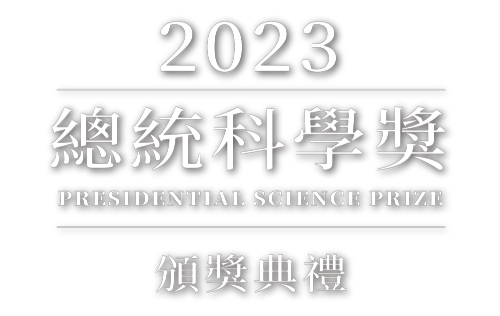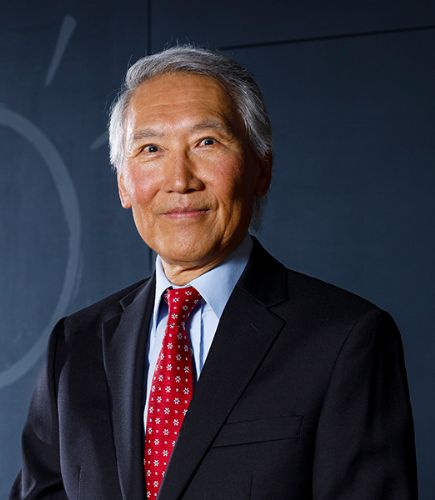2023 AWARDS
2023 AwardeesAcademician Chenming Hu
- Article Category: 2023 AWARDS
- Post Date: 2023/08/30
Applied Sciences Catgory ─ Chenming Hu
A Key Figure in the Advancement of Taiwan's Semiconductor Industry
Breaking Through Transistor Bottlenecks to Extend Moore's Law
Taiwan's semiconductor manufacturing industry leads the world, and the contributions of Academician Chenming Hu to technology research and development cannot be overstated. Academician Hu, who previously served as the inaugural Chief Technology Officer of TSMC (Taiwan Semiconductor Manufacturing Company), also devoted an extensive period to teaching at the University of California, Berkeley. Under his leadership, his research team pioneered the development of the "FinFET" in the late 1990s, a groundbreaking innovation that successfully resolved the issues of chip overheating and miniaturization—challenges that even Intel struggled to conquer at the time. This significant advancement enabled Moore's Law to continue.
According to Hu, the key to their breakthrough was hard work, thinking deeply before solving a problem, and having innovative ideas. They then proposed two different approaches while maintaining confidence that they would find a solution. Both approaches succeeded.
Breaking away from conventional thinking, Hu revolutionized the 50-year-old planar transistor design by transitioning it into a three-dimensional structure, thereby allowing significant augmentation of transistor density. This involved an etching process to create vertical, thin, fin-like crystals, endowing FinFET with the capacity to combine highspeed performance with low power consumption. In 2001, Hu returned to Taiwan, where he pioneered the development of FinFET technology. Under his leadership, TSMC's research and development team published record breaking FinFET prototypes every year, surpassing international semiconductor giants like Intel and Samsung Electronics, establishing a foundation for Taiwan's future ascent to prominent position in the semiconductor industry.
After Intel took the lead in using FinFET technology in 2011, TSMC and Samsung followed suit. Today, electronic products such as the internet, computers, and smartphones rely on FinFET chips. Academician Hu transformed laboratory research into commercially valuable cutting-edge technology, significantly improving the quality of human life.
In recognition of his innovative contributions to the world, Academician Hu received the "National Medal of Technology and Innovation" from former U. S. President Barack Obama. In 2020, he was awarded the highest honor, the "IEEE Medal of Honor" by the Institute of Electrical and Electronics Engineers, and was hailed a "microelectronics visionary."
He has dedicated his life to education, research, and cultivating talents. Hu authored five semiconductor textbooks, published over 1,000 research papers, and received 150 U. S. patents. He earned many educational awards such as the IEEE Education Award, SRC Aristotle Award, and Berkeley Distinguished Teaching Award.
Over the past forty years, Hu nurtured many outstanding talents who excelled in their respective industries. He encouraged young people to cultivate problem-solving skills and focused on research aimed at addressing real-world problems. He developed the BSIM software 30 years ago, an international standard transistor model, and has been continuously updating it and providing it royalty free for the semiconductor industry to design chips with cumulative value of a trillion US dollars.
Despite living abroad for many years, Hu tirelessly worked to advance Taiwan's semiconductor technology and nurture research talents. He contributed to the "Submicron Project" steering committee, which established Taiwan's first 8-inch wafer laboratory, provided long-term guidance to the National Nano Device Laboratory (NDL) of Taiwan's National Applied Research Laboratories, and assisted in leading collaborative project between the University of California and National Chiao Tung University. He advocated that industries are created by businesses, and governments should draw upon limited education resources to provide human resources to support the continued growth of the competitive information and electronics technology industries. He promoted a collaborative model in which "government provides the funding, industry identifies the challenges, and academia searches for the solutions and cultivates the talents that industries need through this process."
Academician Hu's scientific research achievements have made a profound impact on Taiwan's academic and industrial sectors. What is even more commendable is that, after retiring from the University of California, he assumed the role of Chair Professor at National Yang Ming Chiao Tung University in 2017. He continued to dedicate his lifetime of knowledge to giving back to his homeland and strengthening the nation's industrial capabilities.









